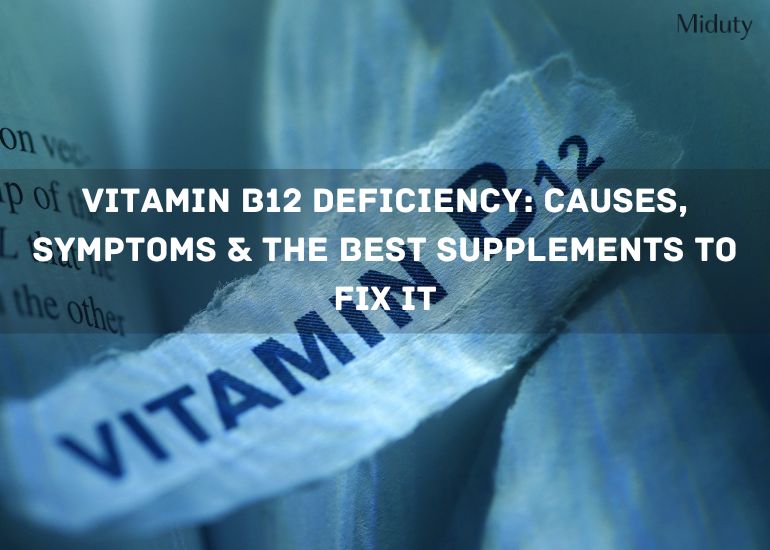
Moringa vs Spirulina: Which Superfood is Best in Nutrients?
Key Takeaways -
1) Moringa leaves have 7 times more Vitamin C than oranges and 4 times more calcium than milk!
2) Historically, spirulina was a key protein source for the Aztecs, who referred to it as "Tecuitlatl".
3) Spirulina is a source of gamma-linolenic acid (GLA), a rare omega-6 fatty acid with anti-inflammatory properties.
4) Spirulina is often referred to as a complete food and it contains up to 60-70% protein by weight.
5) Spirulina enhances the body's glutathione levels, a key antioxidant that aids in detoxifying heavy metals.

Moringa and spirulina are two of the most talked-about superfoods in the health and wellness world today, and for good reason. Moringa, often referred to as the "drumstick tree" or "miracle tree," has been used for centuries in traditional medicine, while spirulina, blue-green algae, is celebrated for its rich protein and antioxidant content and is considered one of the most nutrient-dense foods on the planet.
In fact, just one tablespoon of spirulina can provide about 4 grams of protein, and a good amount of B vitamins, iron, and magnesium.
But what makes these superfoods stand out in the world of wellness trends? Moringa is known for its impressive bunch of nutrients, including vitamins A, C, and E, calcium, potassium, and protein, while spirulina is often hailed as one of the richest plant sources of complete protein, with all nine essential amino acids. [1]
Are you ready to unlock the health benefits of these incredible foods? Let's explore what science says about moringa and spirulina, and how they can enhance your well-being in ways you might not expect.
Table of Contents
1. Nutritional Profile of Moringa and Spirulina
5. Health Benefits of Spirulina
7. Moringa Vs Spirulina: Key Differences!
8. Conclusion
9. FAQs on Moringa and Spirulina
10. References
Nutritional Profile of Moringa and Spirulina
|
Nutrients/ Vitamins/ Minerals |
Moringa (per 10g) |
Spirulina (per 10g) |
|
Calories |
34 kcal |
40 kcal |
|
Protein |
3.4 g |
6.8 g |
|
Carbohydrates |
4.7 g |
2.4 g |
|
Dietary Fiber |
0.9 g |
0.4 g |
|
Fats |
0.7 g |
1.0 g |
|
Vitamin A (Beta-Carotene) |
630 µg (70% DV) |
3400 µg (378% DV) |
|
Vitamin C |
12 mg (20% DV) |
0.7 mg (<1% DV) |
|
Vitamin B1 |
0.15 mg (13% DV) |
0.35 mg (29% DV) |
|
Vitamin B2 |
0.25 mg (20% DV) |
0.4 mg (31% DV) |
|
Vitamin B12 |
0 µg |
2.0 µg (83% DV) |
|
Calcium |
160 mg (16% DV) |
10 mg (1% DV) |
|
Iron |
2.0 mg (25% DV) |
1.7 mg (21% DV) |
|
Magnesium |
42 mg (10% DV) |
20 mg (5% DV) |
|
Potassium |
337 mg (7% DV) |
150 mg (3% DV) |
|
Antioxidants |
High (Rich in polyphenols) |
Very High (Rich in phycocyanin) |
|
Chlorophyll |
Moderate |
Very High |
What is Moringa?

Moringa is a highly nutritious plant that originates from parts of Africa and Asia. Often called the "drumstick tree" or "miracle tree," it is renowned for its impressive health benefits and rich nutritional profile.
The most commonly consumed part of the plant is its leaves, which are rich in a wide range of essential nutrients. Moringa contains:
10 times more vitamins than carrots
7 times more vitamin C than oranges
17 times more calcium than milk
15 times more potassium than bananas making it an excellent addition to a balanced diet. [2]
Moringa also comes packed with over 90 protective compounds, including isothiocyanates, flavonoids, and phenolic acids, which contribute to its powerful antioxidant and anti-inflammatory properties. [3] These compounds help protect the body from oxidative stress, support the immune system, and may reduce the risk of chronic diseases.
In addition to vitamins and minerals, Moringa is a good source of protein and amino acids, which are important for muscle growth and repair. It also contains fiber, which aids in digestion and helps maintain a healthy gut. Moringa is often consumed in the form of powder, which can be easily added to smoothies, teas, or soups. It is also available in capsules, making it convenient for people who prefer supplements.
Moringa is considered a "superfood" that can support your well-being and help manage conditions like: [4]
- Inflammation related diseases
- High cholesterol
- Blood Sugar imbalances
- Anemia
- Low energy and fatigue
- Arthritis and other joint pain, such as rheumatism
- Allergies and asthma
- Constipation, stomach pains, and diarrhea
- Epilepsy
- Stomach and intestinal ulcers or spasms
- Chronic headaches
- Heart problems, including high blood pressure
- Kidney stones
- Fluid retention
- Thyroid disorders
- Low sex drive
- Bacterial, fungal, viral and parasitic infections
Health Benefits of Moringa
1) Provides Antioxidant and Anti-inflammatory Protection:
Moringa Oleifera is a nutrient-rich powerhouse packed with essential amino acids, carotenoids, and antioxidants like quercetin. Its natural antibacterial and anti-inflammatory properties promote overall health, supporting heart health and blood circulation and combating conditions like diabetes, hypertension, ulcers, and tumors.
Moringa also offers anti-epileptic, antispasmodic, and anti-aging benefits. [3] Rich in antioxidants, it helps fight free radicals, oxidative stress, and inflammation, reducing the risk of chronic diseases such as cancers, diabetes, and age-related eye problems.
2) Manages Blood Sugar Levels:

Moringa oleifera helps regulate blood sugar with compounds like chlorogenic acid and isothiocyanates, improving insulin sensitivity and offering anti-diabetic benefits. [5]
Research published in the International Journal of Food Science Technology highlights moringa's ability to improve blood sugar control and insulin levels, particularly when consumed with high-carbohydrate meals. [6] Studies also show that moringa boosts antioxidants and protects organs like the liver, pancreas, and kidneys in diabetic conditions. [7]
Moringa lowers fasting blood sugar, HbA1c, and immunoglobulin levels while supporting weight management through improved insulin sensitivity and hormone balance.
3) Slows Aging Effects and Balances Hormones:
A 2014 study published in the Journal of Food Science and Technology examined the effects of moringa and amaranth leaves on inflammation and oxidative stress in menopausal women. Researchers aimed to see if these superfoods could naturally balance hormones and slow aging. [8]
Results showed that moringa and amaranth improved antioxidant status, reduced oxidative stress, and enhanced fasting blood glucose control and hemoglobin levels.
As for sexual health, some animal studies suggest moringa may boost libido and function as a natural contraceptive. [9][10] Historically used as an aphrodisiac, it may lower conception rates but can support the immune system during pregnancy and increase lactation. [11]
4) Maintaining Digestive Health:

Moringa's anti-inflammatory properties, rooted in Ayurveda, help manage stomach ulcers, liver disease, kidney damage, fungal infections, and digestive issues. [12]
It enhances liver function, supports detoxification of heavy metals, and promotes kidney health by relieving kidney stones, urinary tract infections, constipation, fluid retention, and diarrhea. [13]
5) Restores and Hydrate the Skin:
Moringa is used to retain moisture, speed up wound healing, and soothe dry or burnt skin. Its antibacterial, antifungal, and antiviral properties protect the skin from infections, [14] helping treat conditions like athlete's foot, acne, bites, burns, and wounds. It also reduces dandruff, fights gum disease, and addresses abscesses and viral warts, [15] while restoring the skin's moisture barrier as an effective moisturizer.
What is Spirulina?

Spirulina is a nutrient-rich type of blue-green algae that grows in both freshwater and saltwater environments. It has been consumed for centuries and is considered one of the most nutrient-dense foods available. Historically, spirulina was a key protein source for the Aztecs, who referred to it as "Tecuitlatl." Today, it is cultivated globally and widely used as a dietary supplement in powder, tablet, and capsule forms.
It is a complete protein, meaning it contains all nine essential amino acids required by the body, making it an excellent choice for vegetarians and vegans. Additionally, spirulina is packed with vitamins like B12, Vitamin K, iron, magnesium, and potassium,
Compared to any other plant, spirulina also has the highest concentration of antioxidants in the world and the highest concentration of beta-carotene in the world.
Rich in powerful antioxidants like beta-carotene, phycocyanin, and vitamin E, spirulina helps combat oxidative stress and inflammation, reducing the risk of chronic conditions such as heart disease and arthritis. [16]
It is a great source of fuel for the good bacteria in your gut and has the second highest concentration of omega-3 fatty acids (second only to mother's milk). On top of that, it has over 40 vitamins and minerals despite having only one calorie per serving.
Spirulina is an excellent plant-based supplement to consider.
Also Read- What is Spirulina? - Health Benefits, Side Effects, and How To Take It
Health Benefits of Spirulina
1) Heavy Metal Detoxification:
Spirulina acts as a natural chelator, binding to and eliminating heavy metals and toxins. Its sulfated polysaccharides and phycocyanin help excrete these toxins while protecting cells from oxidative damage.
Animal studies show spirulina reduces lead levels in the blood, liver, and brain, protecting these organs from damage. [18]
Spirulina helps protect the kidneys and brain from cadmium and mercury damage by binding to these metals and aiding in their excretion. Its chlorophyll content supports blood and liver detoxification.
A 2006 study conducted in Bangladesh investigated spirulina's effects on individuals exposed to arsenic-contaminated water. Participants who consumed spirulina combined with zinc supplementation experienced a significant reduction in arsenic levels in their urine and skin lesions. The study concluded that spirulina reduced arsenic toxicity by up to 47%. [17]
2) Helps Lower Blood Pressure:

Spirulina helps regulate blood pressure by improving blood vessel function, reducing oxidative stress, and supporting key physiological processes. Rich in antioxidants like phycocyanin, beta-carotene, and vitamin E, it protects endothelial cells and enhances vascular health. [19]
Spirulina boosts blood vessel elasticity, stimulates nitric oxide production for better circulation, and reduces inflammation to support healthy blood vessel walls. [20] Studies show it lowers LDL cholesterol and increases HDL cholesterol. A study in the journal Hypertension Research 2016 study found that 2 grams of spirulina daily for three months significantly reduced systolic and diastolic blood pressure in overweight individuals. [21]
3) Spirulina Supports Sinus Health:
Spirulina helps alleviate sinus problems by reducing inflammation in the nasal passages and sinuses, thanks to its anti-inflammatory pigment, phycocyanin. It calms the immune response, easing symptoms like congestion, pain, and pressure, and regulates histamine production to reduce sneezing and congestion. Spirulina also thins mucus, helping clear blockages and prevent bacterial growth.
A study in the European Archives of Oto-Rhino-Laryngology found that spirulina supplementation improved allergic rhinitis symptoms, [22][23] with participants reporting a 32% reduction in symptoms compared to a placebo group.
4) Anti-Cancer properties:
Spirulina's antioxidants, anti-inflammatory compounds, and immune-boosting properties make it a promising natural cancer preventive. Rich in phycocyanin, beta-carotene, vitamin E, and SOD, it neutralizes free radicals, prevents DNA damage, [23], and protects cells from oxidative stress.
Anti-inflammatory compounds like phycocyanin and GLA inhibit cytokines like TNF-alpha and IL-6, reducing the risk of colon, liver, and breast cancers. Spirulina boosts immune function by enhancing white blood cells, NK cells, and macrophages to fight cancer and suppress tumor growth. It also induces apoptosis and prevents angiogenesis.
A clinical trial on OSMF patients showed a 45% lesion regression compared to 7% in the placebo group with spirulina supplementation, highlighting its potential in halting precancerous conditions. [24] Studies confirm spirulina's ability to inhibit cancer cell growth while sparing healthy cells. [25]
5) Spirulina Supports Weight Loss:

Spirulina is a protein-rich superfood, containing 60-70% protein, providing all essential amino acids for muscle repair and metabolism. [26] It also contains vitamins (B-complex, A, E), minerals (iron, magnesium, potassium), and antioxidants that support energy metabolism and prevent deficiencies.
Spirulina's phenylalanine content stimulates cholecystokinin (CCK), a hormone that signals fullness, helping control hunger and portion sizes. Its high protein content increases the thermic effect of food, boosting calorie burn during digestion.
A clinical trial showed that overweight participants taking 2 grams of spirulina daily for 12 weeks experienced significant reductions in body weight, BMI, and waist circumference. [27]
6) Spirulina Protects Eye Health:

Spirulina is rich in zeaxanthin, which protects the retina from oxidative damage caused by blue light and UV rays, and supports macular health, reducing the risk of age-related macular degeneration (AMD). Its antioxidants help prevent oxidative stress in the lens, lowering cataract risk, while vitamin E and beta-carotene protect from UV damage.
Spirulina's GLA and omega-3s boost tear production and soothe dry eyes. For diabetics, its antioxidants protect retinal tissues from damage and inflammation, reducing the risk of diabetic retinopathy.
A 2013 study highlighted spirulina's high zeaxanthin content and ability to accumulate in the retina, protecting against light-induced damage. [28]
7) Spirulina's Role in Brain Health:
Spirulina's antioxidants, like phycocyanin and SOD, combat oxidative stress and chronic inflammation, slowing the progression of diseases like Alzheimer's and Parkinson's. Animal studies show it reduces amyloid plaques in the brain, linked to Alzheimer's, and improves memory retention and learning capacity in both animals and humans. [29]
Spirulina boosts brain-derived neurotrophic factor (BDNF), supporting cognitive function. [30] Its tryptophan content promotes serotonin production, regulating mood and reducing stress. Its high iron and B vitamins also improve oxygen transport and energy production in brain cells, enhancing focus and clarity.
A study in Neurochemical Research found spirulina reduced oxidative damage and improved motor and cognitive performance in Parkinson's models. [31]
8) Improves Skin Health:

Spirulina combats oxidative stress, reducing wrinkles, sagging, and dullness. Its amino acids boost collagen production, improving skin elasticity, while GLA and phycocyanin soothe redness and lock in moisture, helping with eczema, rosacea, and sunburn. Chlorophyll detoxifies the skin, and its antibacterial properties and zinc regulate sebum production to prevent clogged pores. Spirulina promotes cell regeneration, brightens skin, and fades dark spots with vitamin K and antioxidants. Beta-carotene and vitamin E protect against UV damage while strengthening the skin's barrier.
A study published in the Journal of Medicinal Food found that spirulina supplementation increased collagen synthesis, improving skin elasticity and hydration. [32]
Research in Oxidative Medicine and Cellular Longevity highlighted spirulina's ability to reduce oxidative damage, helping to protect skin cells from aging. [33]
Also Read- Spirulina Plant 101: Why Spirulina Algae is a Must-Have in Your Diet?
Here's Something You Must Know About Blue Spirulina!
a) Blue spirulina, derived from the blue-green algae Arthrospira platensis, is a powerhouse of nutrients that offers a wide range of health benefits. Widely trusted for its incredible nutritional benefits, millions in Asia and even NASA astronauts have long consumed blue spirulina for its superior health benefits.
Containing up to 60-70% protein and being a rich source of omega-3 fatty acids, blue spirulina stands out as an excellent superfood for boosting immunity and energy.
b) It is nutritionally equivalent to 1000 grams of fruits and vegetables and is packed with essential vitamins like B vitamins, Vitamin C, D, and E, along with minerals like potassium, calcium, iron, and chromium. This makes blue spirulina an easy way to bridge the nutritional gaps that many people experience due to inadequate diets.
c) Blue spirulina plays a significant role in ATP production, which is crucial for maintaining energy levels and supporting overall cellular function. Blue spirulina helps optimize ATP synthesis, ensuring your body has the necessary energy to perform daily tasks, improve endurance, and support recovery after physical activity.
d) By enhancing ATP production, blue spirulina promotes efficient cellular respiration, which enables the body to convert food into usable energy more effectively. This contributes to increased stamina, reduced fatigue, and improved physical performance.
Also Read- Is Blue Spirulina the Ultimate Superfood? Truth or Hype?
e) Taking blue spirulina can also contribute to cardiovascular health by lowering LDL (bad) cholesterol and triglycerides while raising HDL (good) cholesterol.
f) Blue spirulina's high antioxidant content, particularly its potent compound phycocyanin, helps reduce inflammation, protect against oxidative stress, and may even fight chronic diseases like cardiovascular disease, cancer, and diabetes. Its ability to combat free radicals also protects cells from damage associated with aging and inflammation.
g) In addition to its antioxidant power, blue spirulina is also a complete protein containing all nine essential amino acids, making it a valuable addition to any diet. It is a rich source of over 40 essential vitamins and minerals, offering a concentrated dose of nutrients with only one calorie per serving.
h) Hence, it becomes absolutely important to gain added benefits to your diet through the Blue Spirulina supplement which has a high Phycocyanin Concentration, is non-GMO, offers better detoxification, aids in weight loss metabolism, and more.
Try Miduty's Blue Spirulina
Moringa Vs Spirulina: Key Differences!
|
Aspect |
Moringa Powder |
Spirulina Powder |
|
Source |
Derived from the leaves of the Moringa tree (Moringa oleifera). |
A type of blue-green algae (cyanobacteria). |
|
Nutritional Profile |
Rich in Vitamin A, Vitamin C, calcium, potassium, iron, and protein. |
Rich in protein, B vitamins (especially B12), iron, magnesium, and essential fatty acids. |
|
Protein Content |
Moderate protein content (8–10g per 100g). |
Extremely high protein content (60–70% of its dry weight). |
|
Antioxidant Content |
Contains antioxidants like quercetin and chlorogenic acid. |
Contains powerful antioxidants like phycocyanin and beta-carotene. |
|
Health Benefits |
Supports immune function, improves energy, promotes healthy skin, and aids digestion. |
Boosts immunity, detoxifies the body, improves energy, and supports cardiovascular and brain health. |
|
Taste |
Earthy and slightly bitter. |
Mildly salty or seaweed-like taste. |
|
Usage |
Added to smoothies, teas, or as a dietary supplement. |
Added to smoothies, water, or capsules as a supplement. |
|
Potential Side Effects |
May cause slight digestive discomfort if consumed in excess. |
Over consumption may lead to mild nausea or diarrhea in some individuals. |
|
Iron Content |
Contains non-heme iron; good for addressing mild anemia. |
High in bioavailable iron, making it suitable for preventing iron deficiency. |
|
Amino Acids |
Contains all essential amino acids, but in lower amounts. |
Rich in all essential amino acids and non-essential amino acids. |
|
Chlorophyll Content |
Moderate levels of chlorophyll. |
Very high levels of chlorophyll. |
|
Alkalizing Properties |
Alkalizes the body moderately |
Strong alkalizing effect on the body |
|
Omega Fatty Acids |
Minimal omega content |
Contains GLA (gamma-linolenic acid), a rare omega-6 fatty acid |
|
Anti-Microbial Properties |
Contains natural antibacterial and antiviral compounds |
Strong antiviral and antibacterial properties |
|
Detoxification |
Helps detoxify heavy metals due to its chelating properties |
Contains minimal fiber but supports gut microbiota due to prebiotic effects |
Conclusion
Both Moringa and spirulina are incredible superfoods that offer a wealth of nutrients and health benefits. Moringa shines with its rich array of vitamins, minerals, and powerful antioxidants, making it a potent tool for managing inflammation, blood sugar levels, and digestive health. Spirulina, on the other hand, stands out for its high protein content, antioxidants, and ability to support detoxification, cardiovascular health, and immune function.
Whether you're looking to boost your energy, support healthy skin, manage your weight, or protect your body from oxidative stress, moringa and spirulina are valuable additions to any wellness routine.
By embracing these nutrient-dense powerhouses, you can take your health journey to the next level, providing your body with the essential nutrients it needs to thrive. Always remember to consult a healthcare expert before making any significant changes to your diet or supplement routine, ensuring these superfoods align with your individual health needs.

Frequently Asked Questions on Moringa and Spirulina -
Q1. Which is better for you, moringa or spirulina?
It depends on your needs. Moringa is better for immune support, bone health, and vitamin C, while Spirulina is excellent for protein, energy, and vitamin B12. Combining both can offer complementary benefits.
Q2. Can I take both moringa and spirulina together?
Yes, you can take both together as they complement each other nutritionally. However, consult a healthcare provider to ensure the combination fits your dietary needs.
Q3. Who Cannot take Moringa?
Pregnant women should avoid moringa root and bark due to potential uterine contractions. People on blood-thinning or diabetes medications should consult their doctor/ healthcare expert, as moringa may affect blood sugar and clotting.
Q4. What is the best time to take spirulina?
The best time to take spirulina is in the morning or early afternoon, as it can boost energy and focus. Avoid taking it late in the day to prevent potential sleep disturbances due to its energizing properties. Always follow the dosage recommendations.
Q5. Is spirulina high in protein?
Yes, spirulina is exceptionally high in protein, containing about 60-70% protein by weight, making it one of the richest plant-based protein sources. For example, 10 grams of spirulina provides approximately 6.8 grams of protein, which includes all nine essential amino acids, making it a complete protein.

References








